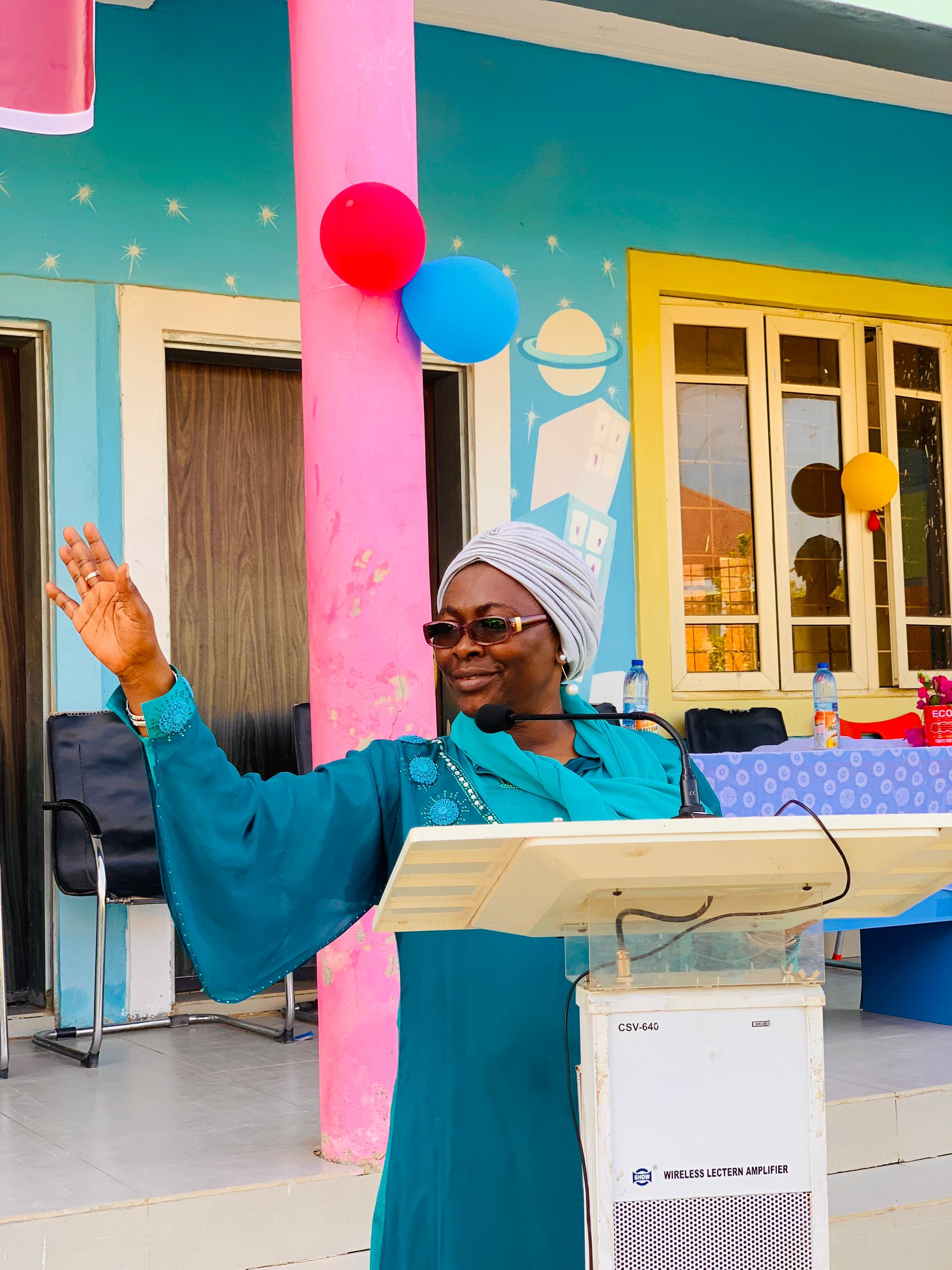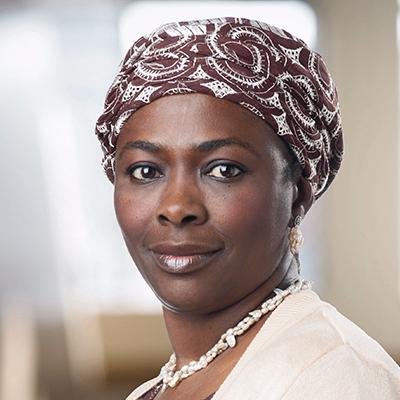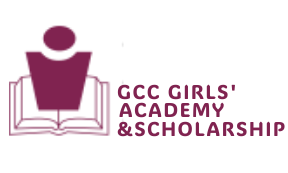ABOUT THE GCC GIRLS’ ACADEMY AND SCHOLARSHIP PROGRAMME
Established in 2003 with the goal of empowering girls through education, life skills and market relevant livelihood skills to live to their best potential regardless of their socio-economic class, Girl Child Concerns has continuously sought ways of improving the lives of girls and women in Nigeria and other countries in Africa. With offices in Abuja, Kaduna, Maiduguri and Birnin Kebbi, its numerous interventions have not only provided access to education for young girls, but also provided them awareness on their reproductive lives, rights, entitlements and responsibility. To achieve this, the organisation works with the girls, their parents and communities, governments, religious and traditional leaders as well as other organisations and institutions with similar interests.
Girl Child Concerns provides holistic interventions that meet the needs of vulnerable adolescent girls, especially those from poor rural areas, disadvantaged and undeserved groups like married adolescents and girls in humanitarian settings. Our specific interventions include Education and Female Students Scholarships for vulnerable girls, Adolescents Reproductive Health & Rights, Advocacy and community mobilization and sensitization on civil rights and responsibilities as well as promoting gender equity. We work with women in communities to promote women empowerment, and sensitization on their roles and responsibilities. We promote and strengthen Reproductive, Maternal, Neonatal, Reproductive Child Health and Nutrition in Communities with poor health indices by training Village Health Workers, Community Health Workers and Nurses/Midwives on simple and proven interventions that improve RMNCH+N. We support, train and work with traditional and religious leaders as well as other community leaders to get them to be actively involved in promoting girls education and women empowerment in their communities. These leaders are leaders are actively involved in our advocacy for Keeping girls in school in Africa.
The organization has empowered and promoted girl child education and providing educational support to young people through its Female Students Scholarships Scheme (FSSS), Safe Spaces and life skills development. Through a comprehensive approach, the process of the scholarship scheme is built in such a way that the girl-child is not only offered formal education but also armed with general life skills; self-agency, responsible adolescents, Reproductive Health and GBV education, as well as Climate Action. GCC runs full Academic scholarship for students across northern Nigeria with a focus on areas where girls traditionally do not go school, there is poor enrolment, retention and completion of secondary education and girls tend to marry early with resultant high maternal mortality and morbidity such as VVF, high Neonatal and child mortality, poor immunization and low contraceptive prevalence rates. GCC Girls Academy Maiduguri was established in September 2020 following improvement in the security situation in Borno state and replaced the commuting of girls by GCC from Borno/Yobe IDP Camps to various states across Northern Nigeria during the height of Boko Haram insecurity. All students are girls directly affected by the Boko Haram insurgency, most of whom are orphans, and from extremely poor families. All students are enrolled directly from Internally Displaced Persons Camps across Borno State. The school currently has over 400 students and at full capacity will have 1,000 students at any time when all classes are fully operational in 2 years. The GCC Girls Academy main objective is to reintegrating vulnerable adolescent girls affected by the insurgency of Boko Haram in the North-East part of Nigeria back to normal life by enrolling them into a safe boarding secondary school within the safe Maiduguri metropolis area where they can complete their secondary education, learn life and livelihood skills and prepare them to heal and be productive members of the society. The Academy is located in Maiduguri, the capital of Borno State in Northeast Nigeria, which prior to the insurgency, has the highest indices of out of school children with girls constituting a higher percentage. The project adopts the India Kahn Academy concept which empowers learners to study at their own pace in and outside the classroom through class lessons, practical exercises, instructional videos and a personalised learning dashboard.
ABOUT THE GCC GIRLS’ ACADEMY AND SCHOLARSHIP PROGRAMME
LEADERSHIP

An Obstetrician/Gynecologist and Public Health Physician with extensive knowledge and experience in strategic planning and implementation of health, social and development transformation initiatives, Dr. Mairo Mandara has worked with a wide range of stakeholder locally and internationally including high level government officials, traditional and religious leaders, women groups and civil societies across Africa. In addition to her carrier experiences and work as a gynecologist and Public Health Physician Dr. Mairo has led many initiatives including being the Senior RH/ HIV Advisor for USAID, Health Systems Specialist for University of Columbia, Country Representative of the Packard Foundation and the Bill and Melinda Gates Foundation as well as Senior Fellow with the Children Investment Foundation UK. Dr. Mairo is currently the Chief Adviser and Coordinator on Sustainable Development, Partnerships and Humanitarian Response to the Governor of Borno State responsible for leading the strategy team of the Governor for the rebuilding efforts of the state destroyed by insurgency. In addition, she is an Associated Research Professor at the Federal University of Health Sciences Azare and a visiting Senior Lecturer at the Dept of Obstetrics and Gynaecology, University of Maiduguri Teaching Hospital. Dr. Mairo has served as a member of the UN Secretary General’s Advisory Group on Central Emergency Response Fund (CERF) that helps to shape and continuously improve the performance of the UN Central Emergency Response Funds, a member of the Governing Council of Nile University Abuja, the Society of Obstetrics and Gynecology of Nigeria and Advisory Council of Ondo State University of Medical Sciences. Dr Mairo Mandara has served and currently serves on the Boards of many National and International NGOs as well as Private Sector Industries. Dr. Mairo is the founder and Board Chair of Girl Child Concerns, an NGO dedicated to improving the lives of women and girls through providing educational opportunities and lifesaving skill, including married adolescents, and providing income generation for poor women. As part of this initiative and in her personal capacity, Mairo has over the last ten years been deeply involved in efforts to rebuild the Boko Haram ravaged Northeast Nigeria; ensuring girls affected by insurgency resume and have good education at the GCC Girls Academy, Training Village Health Workers to provide basic health care services in rural communities, providing income generation opportunities for rural women and Vocational / Entrepreneurial skills for young people in the Lake Chad Region. Dr Mairo mentors a pool of young men and women across Africa, each of who has started their network of community, and business enterprises. Mairo Mandara was nominated as one of the three women building peace awards finalists for the prestigious USIP Global Women Building Peace Award 2025.

Dr. Mairo Mandara
This year is crucial for easing the girls back into a formal learning environment after years of fleeing the insurgency. To support their transition, they receive strong psychosocial support and are introduced to the following core subjects: Having been deprived of education for years, immediately placing them under the standard curriculum would be challenging. While some had prior schooling, others had never attended school at all. Therefore, the initial focus is on building foundational skills in reading, writing, counting, and essential values. Their early lessons include English, Mathematics, Civic Education, and Computer (ICT) studies. This approach helps those with previous schooling reconnect with their studies while allowing newcomers to develop a strong academic base. Once they have made sufficient progress, the full National Curriculum will be introduced, incorporating additional subjects such as Literacy, Numeracy, Civic Education, Information Technology, and Livelihood Skills.
